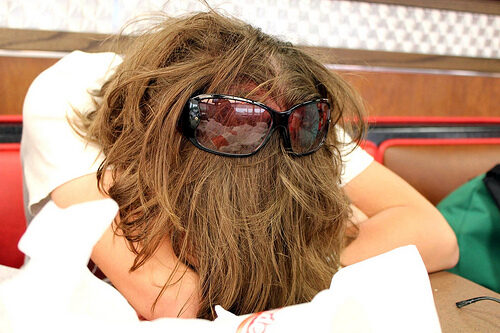Hyperverbal expression, whether it is verbalized or experienced internally, is autism and it is a disability. It has less to do with the volume of words expressed and more to do with the processing style that is common to some autistic people.
Tag: speech
These revelations, about presuming competence, human dignity, and the least dangerous assumption—they don’t apply only to kids who are secret geniuses. They apply to everyone. They are the most important for the kids who really do have intellectual disabilities, who really can’t read or use full sentences and who really do need extensive support.
Trust that your autistic child can thrive alongside others, whether with spoken words, or not. Do not be afraid to tell the next salesperson, arriving with a false horror story about how your child will never achieve anything without their ‘Patented Treatment,’ that you have more confidence in your child than they do.
Photo © NASA Goddard Space Flight Center | Flickr / Creative Commons [image: Photo of two neutron stars ripping each other apart.] Maxfield Sparrow unstrangemind.com Sometimes when I’m talking with someone about autism it feels like we’re talking about two different things. For example, I’ve had countless conversations that go something like this: “You’re nothing like my child. My child has the serious kind of autism,” they might open with. “Autism is serious stuff,” I respond. “It’s important to take it seriously.” “No, I mean my child has the autism with digestive stuff and physical involvement. The severe autism.” “I have intermittent gastroparesis that has sent me to the hospital multiple times. I have a connective tissue disorder that has caused pelvic organ prolapse. These things aren’t autism.” And it’s the truth: the co-occurring conditions we cope with are not autism; they are the “genetic hitchhikers” that love to travel…
Elizabeth Bartmess elizabethbartmess.com This is a three-part series. Part II explores Diversity in Autistic Characteristics and Demographics. Part III explores Setting, Plot, and Character Growth. “A lot of writers and actors seem to be able to get their heads around what autism basically is, in terms of language, sensory, and social communication difficulties. But then it’s as if they don’t know, or can’t extrapolate to, the full range of experiences that autistic people actually live. That things have happened to us, and things have happened in certain ways for us all our lives, and those things have had consequences for who we become and who we are….[T]he autistic characters [readers and viewers] are used to seeing have no depth of experience. They are people without history.” —Chavisory, at Chavisory’s Notebook This series is about what autistic characters look like when they’re written well, when they have the depth of experience…
When autistic people have unreliable and intermittent speech, a crisis can go past stressful to life-endangering. Max Sparrow talks about coping methods and strategies for handling such crises.
Lydia Wayman www.autisticspeaks.wordpress.com If I knew what to say, I’d tell you a million little things that I’ve acquired in my brain over the weeks and months — and lifetime. If I could, I’d tell you that I’m so over age appropriateness. You say Disney and American Girl isn’t age-appropriate for me? Well, excuse my language, but I say you can shove it. I would, if I could, ask you what is the point of encouraging age appropriate interests? Is it to make friends? I have many, even more than I can keep track of sometimes. Is it so that people will like me? Hate to break it to you, but people already do like me (not everyone, but, well, obviously, right?). Is it so that I can be normal? And to what end, I would ask? If I’m comfortable with it, you should be comfortable with it, and that’s…
Mark Osteen www.loyola.edu/fas/mosteen www.oneofusbook.com It’s easy to imagine that a deep silence hangs over people with autism, but nothing could be further from the truth, at least in our case. My autistic son Cameron has always been a noisy, histrionic child. He speaks most volubly with his body, and over the years we’ve learned to interpret this language: gleeful scissors-kicking jumps; contented or angry rocking; a myriad wordless shouts; the fine gradations in a face that to the uninitiated seems blank; an entire lexicon of claps. Cam’s claps are his personal Morse code. A single clap after he has sung a line or done something he finds remarkable serves as an exclamation point: “How about that?!” A series of claps in front of his open mouth creates a booming effect that means “I’m getting mad,” or “I wish I could tell you what I mean.” Several loud claps and a…




